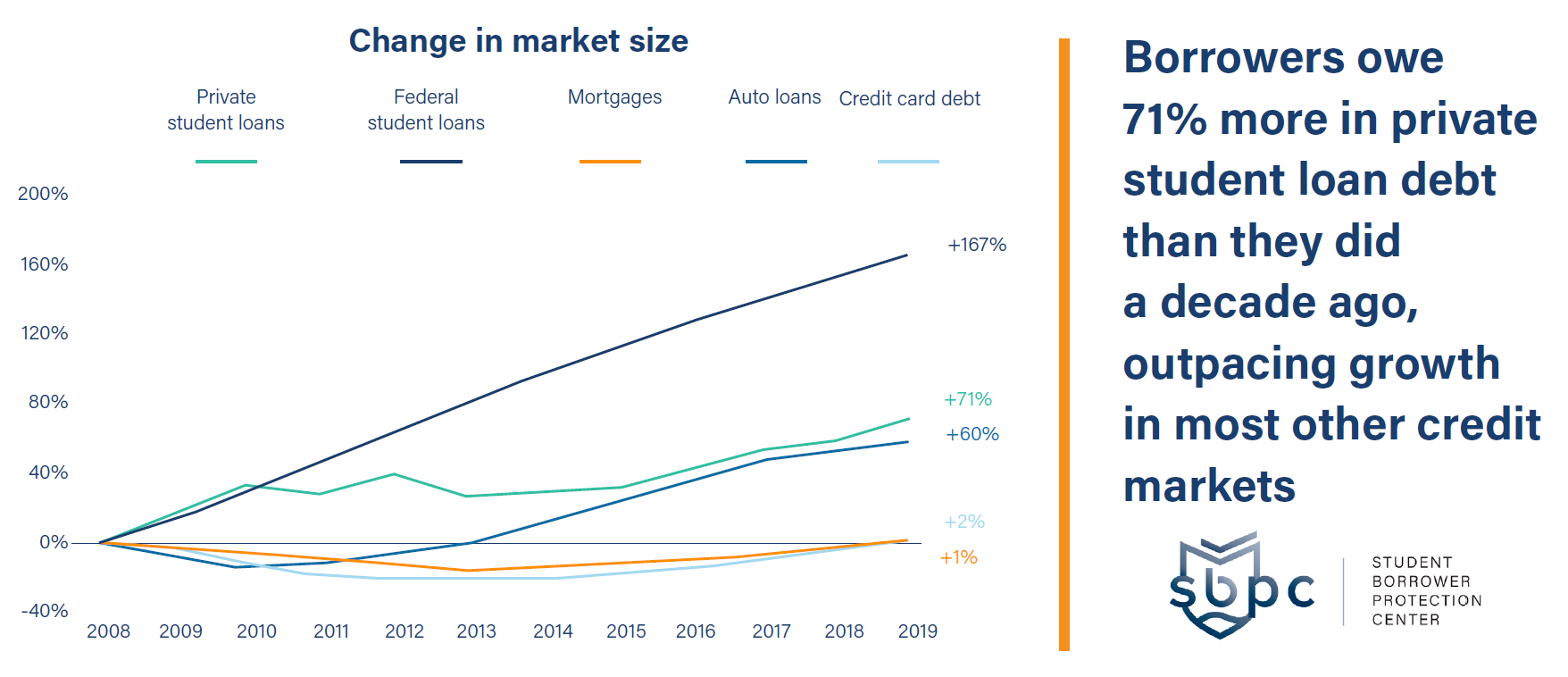Private profit from lending? Come on, that article you posted was great for throwing out percentages, but what it didn't say was that private loans make up about 5% of the total market of student loans, by dollar amount. Sure, it's not nothing, but it pales in comparison to the federal student loans. If the smaller one is "substantial", can we call the government student loans "gargantuan"?kalm wrote: ↑Wed Apr 19, 2023 10:10 amTo clarify…I was speaking of the private profit from lending.UNI88 wrote: ↑Wed Apr 19, 2023 9:41 am
The majority of college students go to public institutions so we haven't had "40 years of privatization and deregulation" in higher education. We have had heavy government involvement in financing higher education and what have been the results? Costs have gone up way faster than inflation and it isn't the evil capitalists/private sector's fault. Government involvement exacerbated a problem but more government involvement will fix it?
The GI Bill was in exchange for service. Free college tuition with no skin in the game on the part of the students is a recipe for exacerbating the problems even more. I'm all for expanding the GI Bill, Americorps and similar programs. I'm against free college without a corresponding service commitment.
It’s substantial.
https://protectborrowers.org/130-billion-psl-market/
As mentioned, I’m not a fan of the current system for the same reasons as you.
Not more but better government can help.
Next, your GI Bill callback (I love when you jump back to the halcyon years of the 1940's and '50's - it's almost a dog whistle that you're making stuff up again) is a red herring if there ever was one. The GI Bill certainly played a part in boosting productivity and output, but even more so was the fact that we just came out of the Great Depression and, for a good decade at least, we were the only real industrialized nation of any size that was still left standing and intact after the war. We had little competition because the competition was picking itself out of literal rubble.
In addition, the GI Bill corrected a problem that doesn't exist anymore - a lot of those GI's got an education which was great, because so many of them and their generation didn't even finish high school back then. We all have stories of grandparents (and I guess great grandparents for the young guys now) who were forced to leave school sometime after age 12 because they had to help make money to put food on the table. It was widespread and it was a major detriment to the education of those kids who had to leave school so early. The GI Bill worked to fill that gap in their schooling - sure, it was mostly at the college level, but many of those GI's didn't need high school diplomas to use the GI benefits at colleges (then as now, colleges never turned down free money from the government) and the GI Bill gave that them education. Today, although there are folks that don't finish high school, it's miniscule to what it was back then. We're already getting the benefit, and much more so, than what the GI Bill gave us.
And lastly, you keep saying "targetted" government spending - just spend it better. On what though? What schooling post 12th grade does everyone need? There's a reason we stop at 12th grade (and why many other industrial nations don't even go that far for everyone) - eventually, there's very little ROI on everyone getting some additional education. It's why parents tell their kids to major in something they can be employed in and preferably make decent money in once they graduate. There are many majors that don't do that, no matter how much you spend government money on those majors. What's the point of pouring more money into things that already don't have an ROI on? If there's something super important that we're not getting into kids now, we should focus on that HS cirriculum rather than pumping money into the college market, which is really what we've already been doing for at least 20-30 years now.






